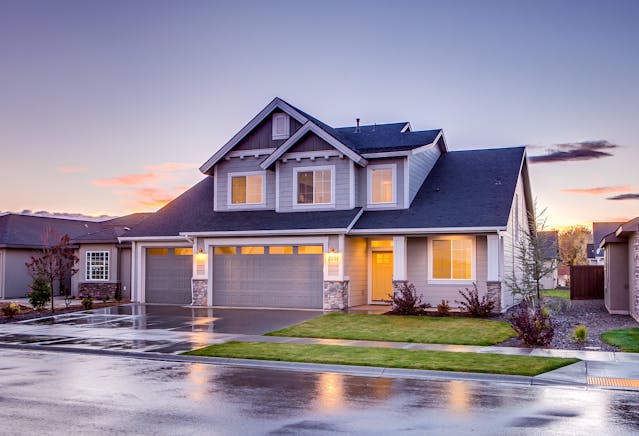By Jianyu Sun
The built world is undergoing a transformation. Across the U.S., commercial real estate operators are no longer relying on clipboards and annual inspections. Instead, they’re embracing intelligent tools — and at the heart of that shift are founders pushing boundaries in AI, automation, and preventative safety.
This evolution is about more than convenience. It’s about mitigating risks, optimizing operations, and preparing infrastructure for an increasingly digital age. The stakes are high: property damage due to undetected issues alone costs U.S. owners billions annually, as identified in McKinsey’s 2022 insights on infrastructure vulnerability. For startups like mine, the mission is clear — to eliminate this inefficiency by building systems that actively protect the value of physical assets.
Technology as Prevention
Automated inspection and monitoring technologies are rapidly becoming foundational in the property tech ecosystem, with JLL’s 2023 report noting their expanding use for predictive maintenance and operational efficiency. Equipped with sensors, smart analytics, and real-time reporting, these systems scan rooftops, detect anomalies, remove risks, and notify managers before issues escalate.
These aren’t just devices — they are intelligent networks collecting and sharing insights that facility managers can act on. In doing so, they prevent not only physical deterioration but also legal exposure, environmental waste, and tenant dissatisfaction.
As the Co-founder of a startup working in this space, I’ve seen firsthand how AI-enabled systems are shifting maintenance from a reactive burden to a proactive advantage. It’s a change not just in tools, but in operational thinking — moving from reactive repairs to intelligent prevention.
The Leadership Behind the Tech
This transformation is being driven not only by engineers but by founders who can bridge the gap between deep-tech capabilities and real-world real estate pain points.
In my work, I lead business strategy, partnerships, and investor relations, while collaborating with engineering teams on product direction. The role demands a blend of domain fluency and vision — seeing how autonomous infrastructure fits into larger asset management systems and working to bring those ideas into commercial reality.
Founders in this field must navigate technical feasibility, regulatory constraints, and real estate industry inertia. It takes more than a product idea — it takes a long-term view of how safety, sustainability, and profitability align.
From Innovation to Impact
What makes autonomous property systems especially promising is their wide-ranging impact. Safety is one of the most significant. By eliminating the need for repetitive manual checks, intelligent platforms reduce the risk of workplace accidents — a major concern in property management.
Then there’s the environmental piece. Poorly maintained assets lead to runoff pollution, inefficient energy use, and premature material degradation. Automated maintenance extends lifecycle and reduces waste.
And perhaps most compelling: the operational intelligence generated by these systems. This data feeds predictive models that tell landlords where and when to act. It’s a step toward true property intelligence — where buildings “report” their needs and service is tailored automatically.
The Broader Context
This is not just a trend within commercial real estate. It’s part of a larger movement toward intelligent infrastructure. As cities adopt smart sensors, connected transportation, and automated energy systems, property management must evolve as well.
Startups are playing a pivotal role in this shift, a trend highlighted in CBRE’s 2023 Global Real Estate Outlook. While large corporations often move slowly, smaller teams with deep focus are tackling niche but critical problems. In doing so, they’re laying the foundation for scalable tech that can be adopted across industries and borders.
These innovations are also opening new conversations with insurers, municipalities, and public safety regulators, as seen in Deloitte’s 2021 report on smart buildings. How do we rethink liability when autonomous systems perform inspections? How do we ensure equity of access to these tools across property types?
The founders who step into these conversations — who blend policy awareness, technical credibility, and business insight — are the ones shaping the future.
What Comes Next
Looking ahead, we’ll see deeper integration between intelligent infrastructure and the broader building tech stack — HVAC controls, security systems, and sustainability dashboards. These systems will form the connective tissue of urban infrastructure, constantly updating and improving how space is managed.
In the meantime, early adopters are gaining significant competitive advantage. Investors are showing interest in startups that can both reduce operational costs and support ESG goals. The combination of safety, automation, and predictive analytics is powerful — and it’s resonating far beyond just facility managers.
As we look to the future, the intersection of entrepreneurship and engineering will remain the most fertile ground for transformation. It’s here that ideas become systems, and systems become the new standard.
About the author: Jianyu Sun is the Co-founder of a U.S.-based startup building intelligent maintenance solutions for commercial property applications. She holds a Master’s in Entrepreneurship and Innovation from the University of California, Irvine, and has worked across real estate, technology, and operations. Her work focuses on applying AI and automation to infrastructure challenges.



